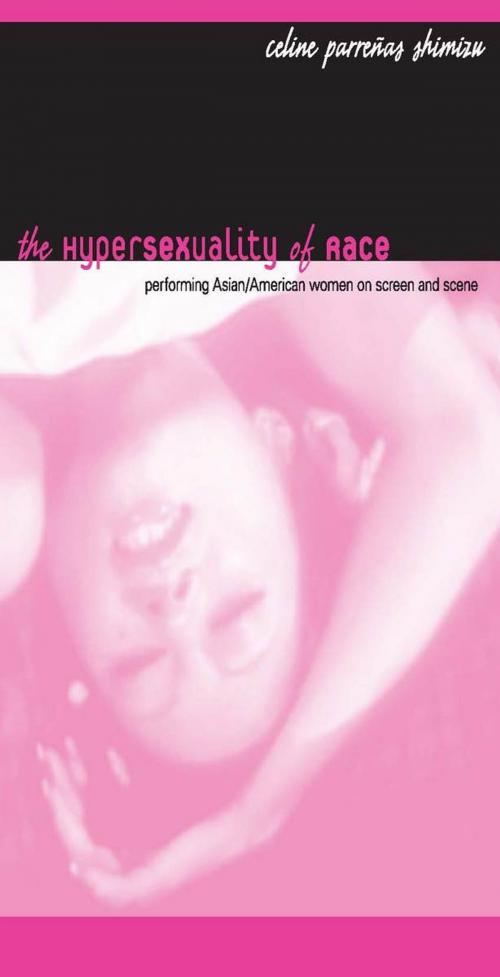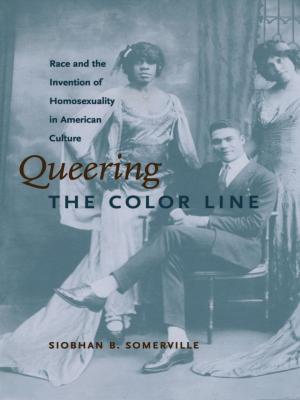The Hypersexuality of Race
Performing Asian/American Women on Screen and Scene
Nonfiction, Social & Cultural Studies, Social Science, Cultural Studies, Ethnic Studies| Author: | Celine Parrenas Shimizu | ISBN: | 9780822389941 |
| Publisher: | Duke University Press | Publication: | July 30, 2007 |
| Imprint: | Duke University Press Books | Language: | English |
| Author: | Celine Parrenas Shimizu |
| ISBN: | 9780822389941 |
| Publisher: | Duke University Press |
| Publication: | July 30, 2007 |
| Imprint: | Duke University Press Books |
| Language: | English |
In The Hypersexuality of Race, Celine Parreñas Shimizu urges a shift in thinking about sexualized depictions of Asian/American women in film, video, and theatrical productions. Shimizu advocates moving beyond denunciations of sexualized representations of Asian/American women as necessarily demeaning or negative. Arguing for a more nuanced approach to the mysterious mix of pleasure, pain, and power in performances of sexuality, she advances a theory of “productive perversity,” a theory which allows Asian/American women—and by extension other women of color—to lay claim to their own sexuality and desires as actors, producers, critics, and spectators.
Shimizu combines theoretical and textual analysis and interviews with artists involved in various productions. She complicates understandings of the controversial portrayals of Asian female sexuality in the popular Broadway musical Miss Saigon by drawing on ethnographic research and interviews with some of the actresses in it. She looks at how three Hollywood Asian/American femme fatales—Anna May Wong, Nancy Kwan, and Lucy Liu—negotiate representations of their sexuality; analyzes 1920s and 1930s stag films in which white women perform as sexualized Asian characters; and considers Asian/American women’s performances in films ranging from the stag pornography of the 1940s to the Internet and video porn of the 1990s. She also reflects on two documentaries depicting Southeast Asian prostitutes and sex tourism, The Good Woman of Bangkok and 101 Asian Debutantes. In her examination of films and videos made by Asian/American feminists, Shimizu describes how female characters in their works reject normative definitions of race, gender, and sexuality, thereby expanding our definitions of racialized sexualities in representation.
In The Hypersexuality of Race, Celine Parreñas Shimizu urges a shift in thinking about sexualized depictions of Asian/American women in film, video, and theatrical productions. Shimizu advocates moving beyond denunciations of sexualized representations of Asian/American women as necessarily demeaning or negative. Arguing for a more nuanced approach to the mysterious mix of pleasure, pain, and power in performances of sexuality, she advances a theory of “productive perversity,” a theory which allows Asian/American women—and by extension other women of color—to lay claim to their own sexuality and desires as actors, producers, critics, and spectators.
Shimizu combines theoretical and textual analysis and interviews with artists involved in various productions. She complicates understandings of the controversial portrayals of Asian female sexuality in the popular Broadway musical Miss Saigon by drawing on ethnographic research and interviews with some of the actresses in it. She looks at how three Hollywood Asian/American femme fatales—Anna May Wong, Nancy Kwan, and Lucy Liu—negotiate representations of their sexuality; analyzes 1920s and 1930s stag films in which white women perform as sexualized Asian characters; and considers Asian/American women’s performances in films ranging from the stag pornography of the 1940s to the Internet and video porn of the 1990s. She also reflects on two documentaries depicting Southeast Asian prostitutes and sex tourism, The Good Woman of Bangkok and 101 Asian Debutantes. In her examination of films and videos made by Asian/American feminists, Shimizu describes how female characters in their works reject normative definitions of race, gender, and sexuality, thereby expanding our definitions of racialized sexualities in representation.















